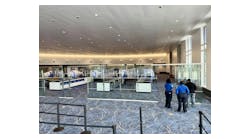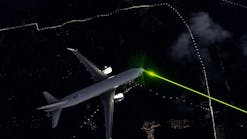... or want is another story about a certain unnamed worldwide health threat with extensive global trickle-down effects lurking around every corner, and nine weekly webinars of ideas, meetings and conferences about how to deal with it in your unique airport environment. Unfortunately, the ICAO guidance you were hoping for to help deal with the issue at your airport isn’t coming anytime soon....but the bug is already here. So what’s the plan?
First, a definitional problem: It has always been a struggle understanding the boundaries surrounding such terminology as safety, security, and facilitation. This is further exacerbated by 193 ICAO member nations that often define, legislate, and regulate each term significantly differently in their national plans. One long term ICAO goal is to seek some level of universal consistency in applying the Standards and Recommended Practices (SARPs) offered in Annex 9 (facilitation), 14 (aerodromes) and 17 (security) to smooth international travel. It accomplishes this in part through ongoing audits via its Universal Safety Oversight Audit Program (USOAP), and its Universal Security Audit Program (USAP).
It is important to recognize these audits do not directly cover airlines or airports; they are restricted to the legislation, resources, and capacities which Member State governments establish to implement ICAO standards in each topical area. It’s equally important to note that safety and security have separate audit programs – ICAO seems to recognize they are not the same but is unclear about where (or whether) boundaries between them exist or merge.
“So what?”, I heard someone say. “Our US airport emergency plans, US airport security programs, and all related operational, budgetary, and staffing decisions are directly driven by FAA and TSA regulations ... and similarly, every other nation’s plans by their own legislative and regulatory bodies, laws, cultural and economic priorities.” True enough, but one of ICAO’s overall roles is to smooth out those international differences a bit, flatten the curve so that international travel becomes a single efficient event, not a series of bureaucratic crises at every point, where the rules of traveling from Nation X to Nation Q via a connection in Nation R with a stopover in Nation Z that doesn’t leave you stranded in Uzbekistan (with apologies to that great nation...).
Not so fast. As noted above, the documentation system underlying that smoothing process is regularly monitored and audited by ICAO, who has just issued an October 9 Electronic Bulletin that it is suspending all USOAP (Safety) audits indefinitely except for a very few already underway; the bulletin is silent (so far) about security audits. The stated reason is a generic CV-19 worldwide caution and disruption of next year’s planning, with resumption potentially based only “on the status of aviation worldwide, as well as global health and safety assessments of WHO...” – understandably terribly vague, impossible to plan for, and a vacant audit trail to see how we’re doing.
There is a suggestion in the Bulletin that modified audits could go virtual in the undefined future, as well as a strong encouragement that the Member States themselves “... would ensure the currency and accuracy of the modules...” by self-audits using all the ICAO checklists, questionnaires and tools.” Again, recall that these are audits examine the underlying government-level documentation to validate their view of national compliance with ICAO, but would presumably require some level of examination of representative airport response. But given the same conditions driving ICAO to stand down on safety audits (and possibly a similar attention to security), TSA and FAA may be looking to the airports for self-audit assistance – in essence, TSA asking the airport “how are we doing”. Direct participation may identify more opportunities for airports to educate world governments on the realities of the newly evolving safety/security environment and to finally update the decades-old guidance.
Once again, there is no mention yet of suspending security audits, which logically would seem to be subject to the same CV-19 concerns and constraints, so watch the ICAO announcements and bulletins.




